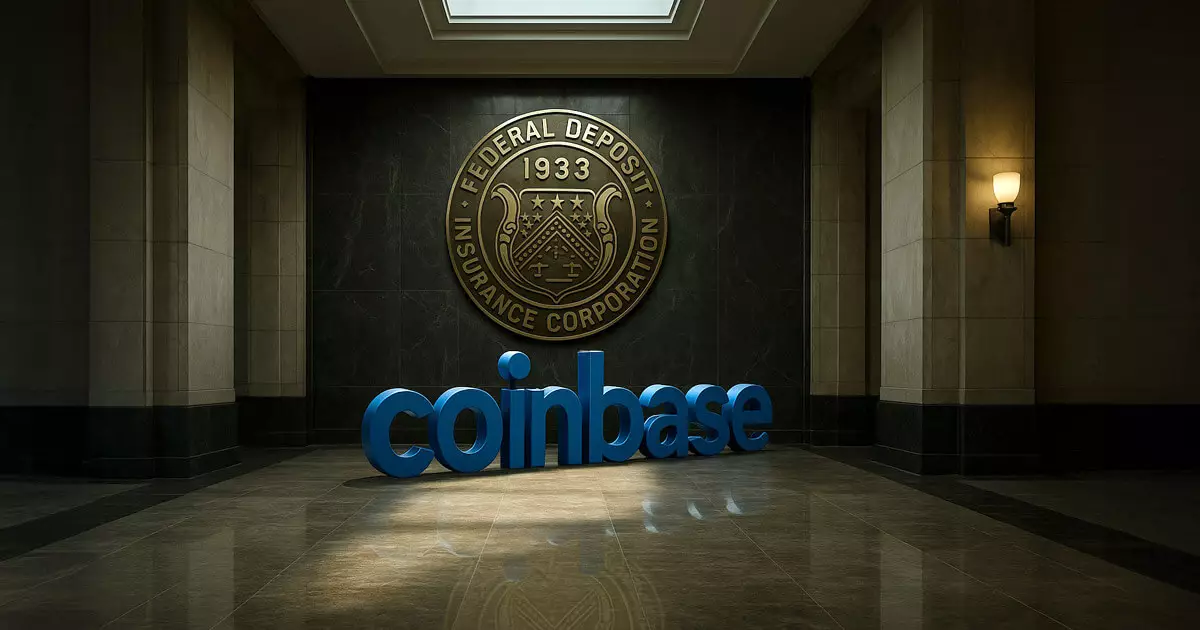In a dramatic legal confrontation, Coinbase has taken a stand against the Federal Deposit Insurance Corporation (FDIC) over what it perceives as blatant attempts to delay transparency concerning the agency’s interactions with cryptocurrency firms. On April 10, Coinbase’s Chief Legal Officer, Paul Grewal, publicly decried the FDIC’s request for a 16-day extension on document releases related to an ongoing Freedom of Information Act (FOIA) lawsuit. Such evasive behavior raises questions about the FDIC’s commitment to accountability and transparency in what is increasingly becoming a high-stakes turf war over digital assets in America.
Unpacking the Absurdity of the Delay
Grewal’s characterization of the FDIC’s request as “absurd” is not just a rhetorical flourish; it reflects a deeper frustration with an agency that appears to be stalling in fulfilling its legal obligations. When a government body chooses to extend timelines unnecessarily, it undermines public trust and evokes a sense that they have something to hide. Coinbase’s assertion that the FDIC submitted a lengthy 13-page request for extra time indicates a bureaucracy more interested in avoiding scrutiny than in transparency. At stake is our understanding of a government agency’s role in actively debanking crypto firms, which raises profound implications for the future of financial innovation.
The Public’s Right to Know
Coinbase isn’t merely fighting for its interests; it’s at the forefront of a broader battle for the right to access information. By challenging the FDIC, Coinbase represents a growing segment of the cryptocurrency industry that is increasingly fed up with regulatory overreach and lack of coherent policy. Their legal battle highlights how the intersection of technology and regulation can lead to bureaucratic impasses that favor stifling innovation over fostering a thriving economic ecosystem.
The implications of government agencies, like the FDIC, potentially using their power to pressure financial institutions into shunning legitimate companies shed light on a troubling aspect of modern governance. When regulators favor certain industries or practices at the expense of others, they risk creating an uneven playing field where innovation is stifled. The public, not just the businesses engaged in the crypto space, deserves insight into who is influencing these pivotal decisions.
A Call for Transparency and Accountability
The release of hundreds of pages of internal FDIC communications revealing efforts to debank crypto firms only scratches the surface of a larger issue. Coinbase’s push for further transparency reveals the often murky environment that exists when regulatory bodies exercise their authority. By exposing the influence of the FDIC on banks—pressuring them to sever ties with cryptocurrency businesses—Coinbase is not just advocating for itself but for a broader system of accountability.
This corporate saga is emblematic of the larger struggle between innovation and regulation. As companies like Coinbase advocate for transparency, they send a crucial message to regulators: the community will no longer tolerate delays or obfuscations regarding the governmental approach to cryptocurrency. The focus must shift towards collaboration instead of confrontation, with an emphasis on constructive dialogue that ultimately benefits the economy as a whole.
As this legal saga unfolds, one thing is clear: the drumbeat for accountability from agencies like the FDIC is only going to grow louder. Coinbase’s refusal to back down in the face of regulatory caution should serve as inspiration, not just for other cryptocurrency firms, but for anyone who believes in the necessity of a transparent, responsive government.


Leave a Reply